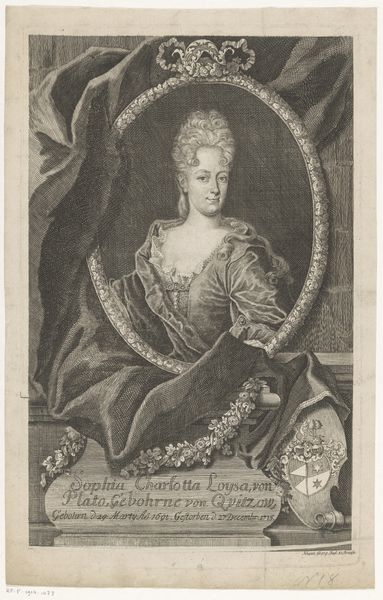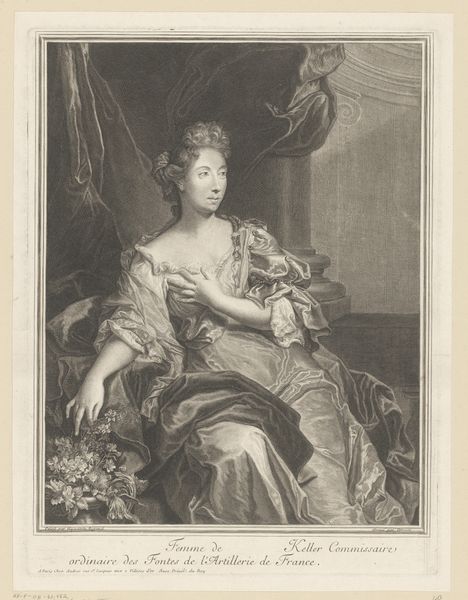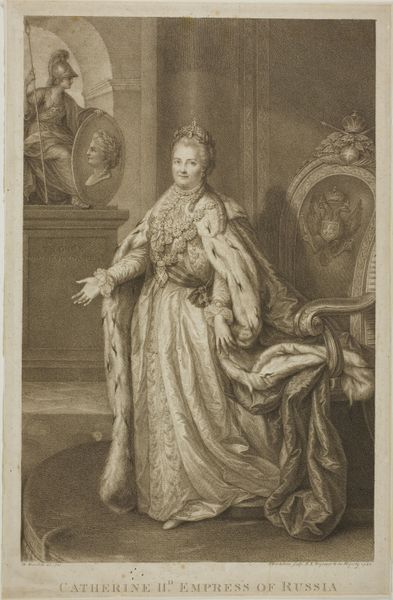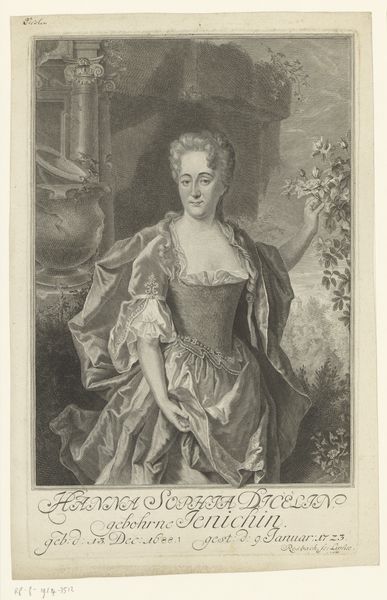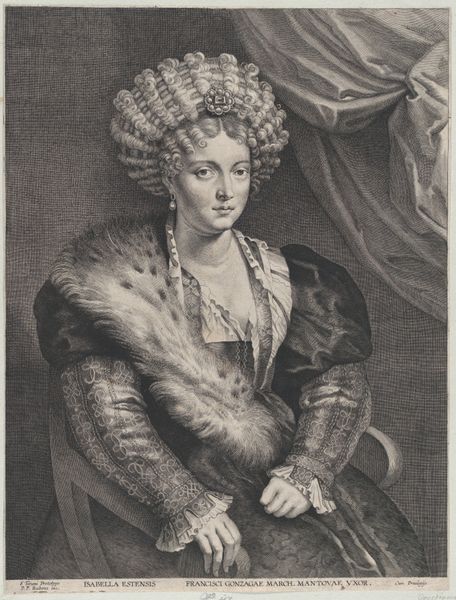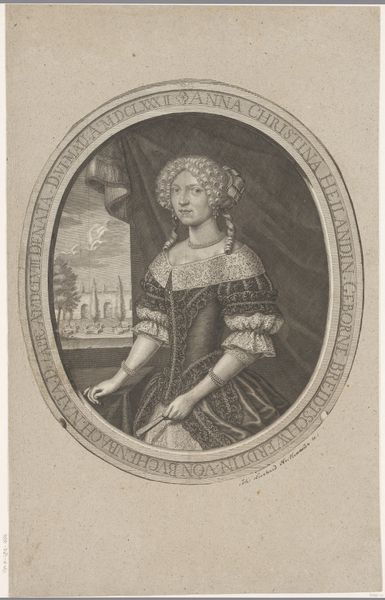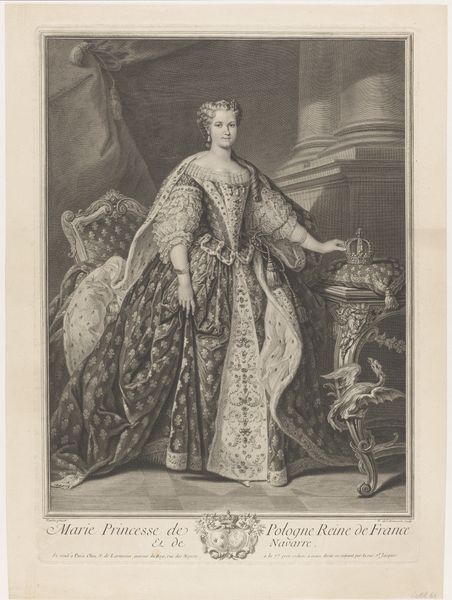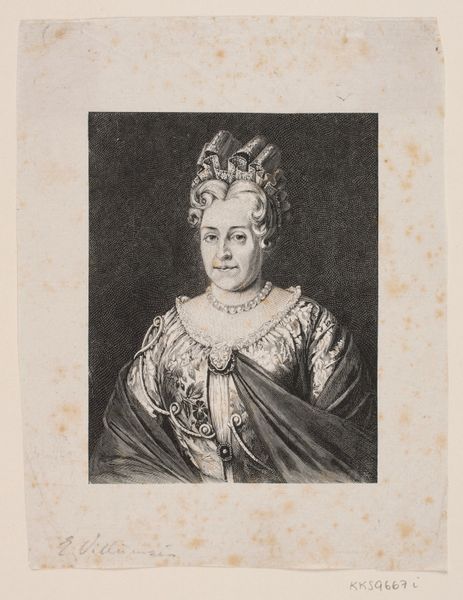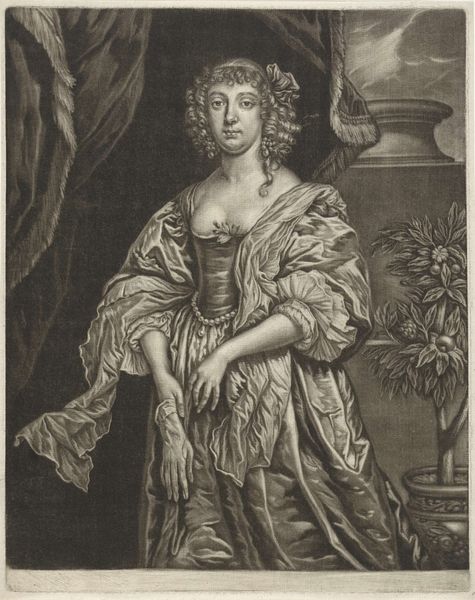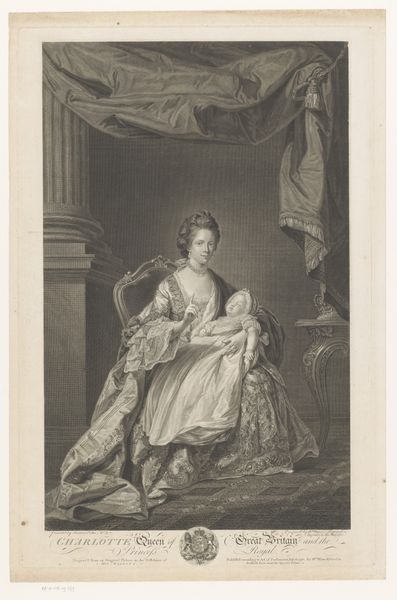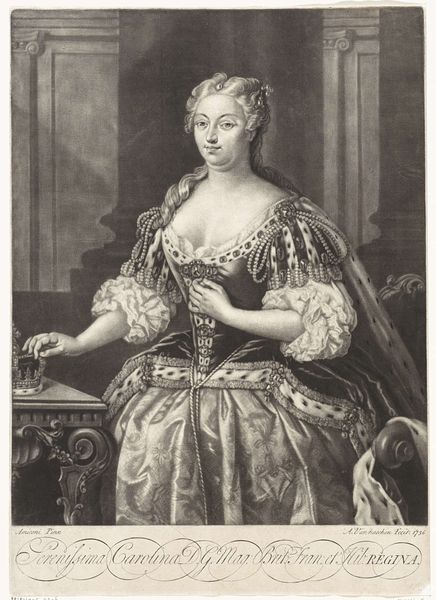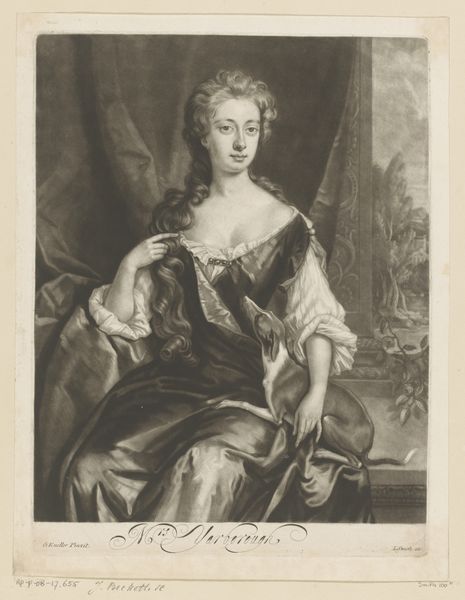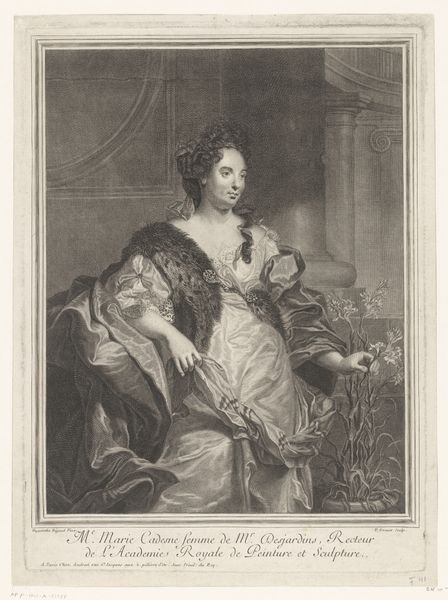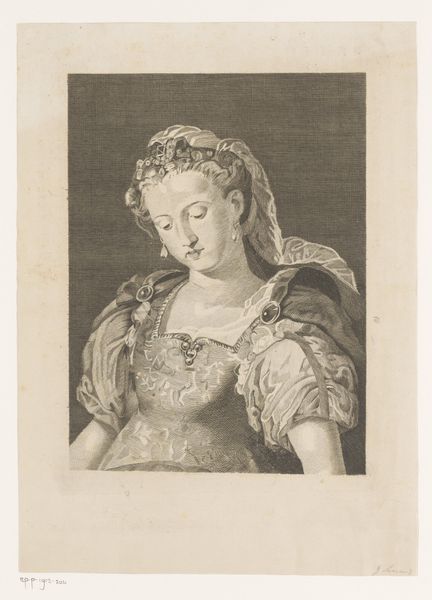
print, metal, engraving
#
portrait
#
baroque
# print
#
metal
#
old engraving style
#
portrait drawing
#
history-painting
#
engraving
Dimensions: height 322 mm, width 198 mm
Copyright: Rijks Museum: Open Domain
Editor: This is a baroque portrait of Tsarina Anna Ivanovna of Russia, created between 1730 and 1743 by Johann Georg Mentzel. It’s an engraving, so metal was used. There's a somber stillness about the portrait, emphasized by the highly formal composition. How do you interpret the symbolic language used here? Curator: Well, first, observe how Anna is adorned. The crown, the scepter – they are obvious emblems of power, linking her directly to the long line of rulers before her. But what about the less obvious details? Look at the ermine trim on her robe. Ermine has been associated with royalty since medieval times, signifying purity and nobility. It's about maintaining a lineage of moral authority as much as political power. Editor: That makes sense. So, the fur isn't *just* for warmth, it's communicating something! What about the angel-like figure hovering above her head, is that supposed to represent divine right? Curator: It could be! It evokes that very notion. The engraver invites us to consider Anna's reign as divinely ordained. But consider, too, how such symbolism plays within the anxieties of leadership. Did Anna feel secure in her role? Or was the artist making up for doubts of her legitimacy by emphasizing religious support? The engraving gives an interpretation, but may obscure a more nuanced truth. Editor: Interesting point. So, it's not just about showing power, but also about perhaps…asserting it in the face of possible uncertainty? Curator: Precisely! The symbols in art are rarely straightforward declarations. Often, they’re carefully constructed arguments meant to persuade and reinforce beliefs within the viewer, sometimes masking complexities, sometimes reflecting continuity. Editor: I’ll never look at a portrait the same way again! Curator: Nor should you. The surface always conceals a deeper narrative.
Comments
No comments
Be the first to comment and join the conversation on the ultimate creative platform.
